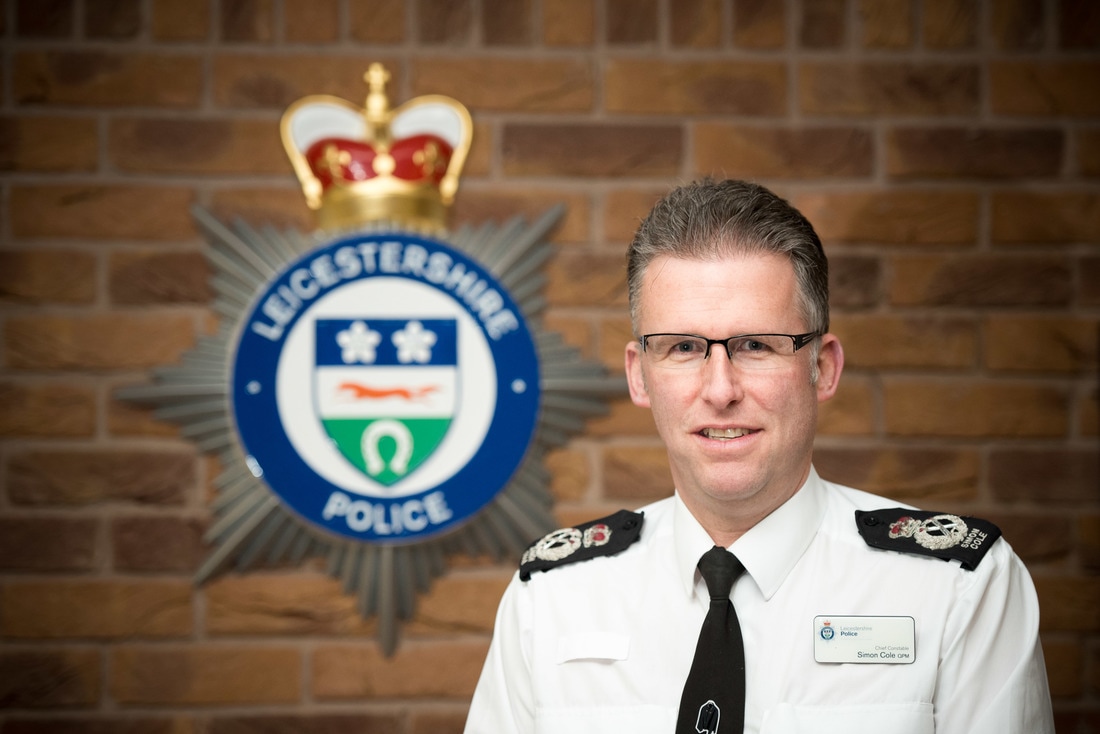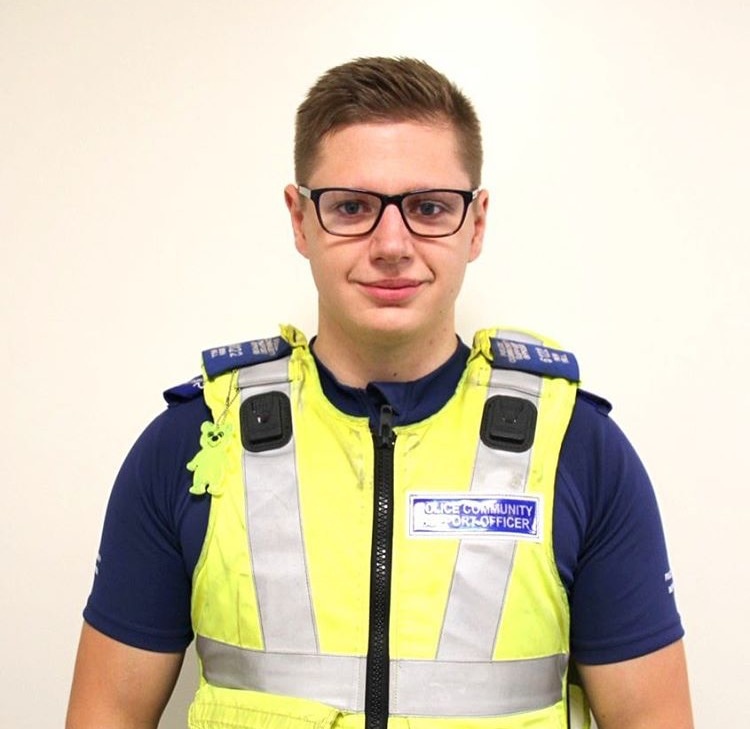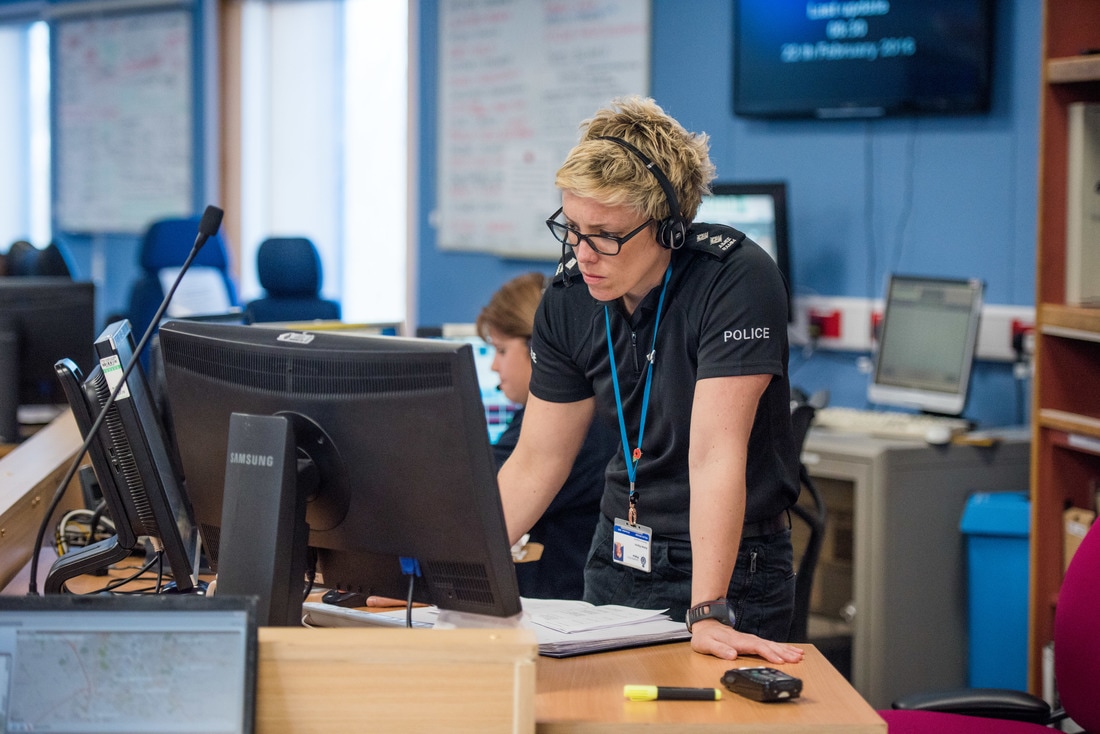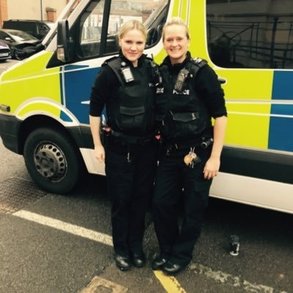| This year marks the 50th anniversary of a single police force in Leicester, Leicestershire and Rutland. Formed to protect the public and reduce crime, the organisation has developed with society and technology over the years, striving to uphold the motto, protecting our communities. Writing exclusively for my blog, the Chief Constable of Leicestershire, Simon Cole, looks at how the police force has changed in line with society. |
Policing has always focused on ‘walking the beat’ and being a visible presence on the streets. As technology advances, it is important that policing becomes a part of the online community and connects with the public in the ways they feel most at ease.
Departments now accept enquiries from the public through social media, officers hold live web chats with the community and respond to messages on Twitter, regardless of whether it is a serious concern or a lighthearted conversation, just as they would on the street.
The last decade has shown that crime is no longer only committed on the streets, but in the anonymity of the internet. The recent case of Kayleigh Haywood is an example to us all. We must always prevent harm, hence films such as Kayleigh’s Love Story.
There has been a shift in the way people spend their free time, causing a need for a force presence online. Society uses technology at work, when travelling throughout the day and socially, so it is necessary for us to be present where the public chooses to be. The average person still sees a police officer walking by as often as they used to, but at the same time as visibility online has increased enormously, making us more approachable overall.
The advancement of technology has changed the way the force functions and with a growing demand, new departments have been formed such as communications and IT support as well as introducing new roles including Police Community Support Officers (PCSOs).
"Soon the public wanted more and I was asked to give presentations to local groups about the benefits for their communities and getting additional funding to bring out more PSCOs to the area.”
Over the years a PCSOs responsibilities expanded from engaging with the local communities to tasks such as statement taking, intelligence gathering and scene preservation.
“Whilst a police officers’ role has more powers and can deal with conflict, arrest and investigation at a higher level, we are more focused on visible and community issues, intelligence gathering and reassurance. As the role developed, we had marked CSO cars with CCTV, we were RIPA trained and used in a number of ways for anti-social behaviour and even night time economy for recording of incidents.”
Tony states that the past few years have proved that technology has been a great addition to his role, granting PCSOs the capacity of reading incidents and updating without returning to the office.
“Social media promotion is instant and maintains getting the positive message to the community on a regular basis. My smartphone gives me instant access to my email and therefore my community has direct access to me, which results in speedy and positive results for the community as a whole.
"Overall, my role makes me feel very much a part of the community and I get excellent feedback from councils, parish and local. They all feel confident in getting in touch for advice, guidance and concerns where they feel I can assist.”
As the demand for PCSOs increased, digital PSCOs were introduced in September 2016 to increase our presence in the online community and to introduce a new way of keeping in contact with the public. They work together with traditional PCs and PCSOs to prevent and react to reports of crime in Leicester, Leicestershire and Rutland.
| Our PSCOS serve as being a checkpoint to a specific community in Leicestershire. Digital PSCO, Ben Hill, has been part of the Cyber Beat project since it started. “My role gives me direct contact between the public and police through social media, giving us all the ability to instantly speak with residents – essentially being in several places all at once. "I certainly feel like I have connected with a community online and very much feel part of it. People will often come to me for advice or to report issues rather than phoning or walking in to a police station.” Having a direct line to the community, digital PCSOs are a huge example of how the force is adapting to society’s needs. |
This brings new challenges such as the digital shift widespread in the force. As an example, our Contact Management Department (CMD) is adapting to take emergency calls through social media and via email. Traditionally a telephone concept, this change will bring difficulties in translating policies, and processes over to the digital world as well as the training that will need to be provided.
“Previously staff had less readily available information to guide and advise the public, and we were much more focused on set policies and procedures. Technology is opening our communication channels, allowing us to reach and engage our different communities in different ways.
"This has an obvious impact on the role of staff; they need constant training, and it is a challenge to keep up to date with technology. It’s an exciting time, and an opportunity for us to try and develop new ways of engaging our public in a way that they want and need.
"We want to be accessible to everyone, in a variety of different ways, meeting the demand of the public.”
| Likewise, police officers take advantage of the internet and its ability to connect them with their local community. Sergeant Elizabeth Perry (pictured with a colleague), a police officer since 2008, feels that “technology has been brilliant in allowing officers to be more visible in the community, the use of smartphones keeps officers out of the station and able to record updates whilst out on the street.” Local policing will always consist of officers patrolling the streets but the last 10 years has adapted the meaning of local policing to include our vigilance within the online community. |
When I started Policing, longer ago than I care to remember, I don't recall a networked computer in the station. At home the telephone was made of bakelite and stood on the hall table, where it was plugged into the wall. But now, as a Chief, I can't think of much that doesn't involve the cyber world. Even playground fights often have a build up in cyberspace, on mobile phones that give instant access to opportunities and threats.
Policing needs to exist where communities exist. That means cyber space, digital forensics and cyber patrol. Local policing is now global, and global policing is now local. Policing has always evolved to deal with a changing world.
It existed before the telephone was invented – a challenge has been met. The cyber world will be no different for policing, and we must move with the times to meet that demand too. I find the challenge exciting.









 RSS Feed
RSS Feed
